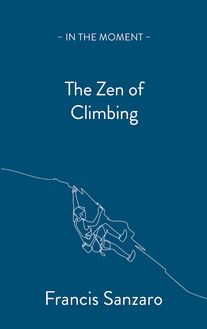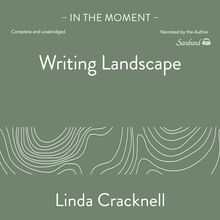-
 Univers
Univers
-
 Ebooks
Ebooks
-
 Livres audio
Livres audio
-
 Presse
Presse
-
 Podcasts
Podcasts
-
 BD
BD
-
 Documents
Documents
-
- Cours
- Révisions
- Ressources pédagogiques
- Sciences de l’éducation
- Manuels scolaires
- Langues
- Travaux de classe
- Annales de BEP
- Etudes supérieures
- Maternelle et primaire
- Fiches de lecture
- Orientation scolaire
- Méthodologie
- Corrigés de devoir
- Annales d’examens et concours
- Annales du bac
- Annales du brevet
- Rapports de stage
La lecture à portée de main
Découvre YouScribe en t'inscrivant gratuitement
Je m'inscrisDécouvre YouScribe en t'inscrivant gratuitement
Je m'inscrisEn savoir plus
En savoir plus

Description
Inhabiting a landscape, walking a landscape, writing a place and time.
Linda Cracknell is a writer of place and nature who believes in being alert, observing, and writing from the particulars of each experience. Engaging bodily with her writing, she is someone for whom getting mud on her boots, sleeping high up in the hills, or being slapped by salt water can all be part of her process. She follows Susan Sontag's advice to “Love words, agonize over sentences and pay attention to the world.”
In this varied collection of essays, Linda backpacks on a small island that is connected to the mainland at low tide, musing on the nineteenth-century Scottish writer whose character was shipwrecked there. She hikes the wooded mountain trail close to her home in winter snow—a place she is intimately familiar with in all weathers and seasons—and she retraces the steps of a multiday hike made almost seven decades after her parents trod the route together. She explores her inspirations, in nature and from other artists and their work.
Reading this collection will open your eyes to the world around you and how you can observe, take note, and later commit those notes and memories to written pieces that will evoke the place and time.
This morning I walked the Birks of Aberfeldy before settling down to work. It was a bright, chill late April morning. Despite the previous week in which I’d suffered sunburn, this morning the frost nipped at my fingers and snow had settled low on the surrounding hills.
The walk took me out from Aberfeldy's streets and neat gardens to a path narrowing through picnic tables and signs. It took me toward something more elemental that was, as ever, in a state of change. Low down in the dank, deep places where the burn chitters, tree trunks and boulders were cling-wrapped in moss. Their bulky presences were luminous in the low light, but dry and almost warm to the touch like animal coats. Whilst the woodland remained mainly skeletal, the maroon brush of the birch trees high on the banks of the ravine was crowned with the first slight flush of green. Last year's crisp golden bracken, flattened by the winter gales and snow, carried over it a creeping drift of wood anemones, their pale bell-flowers kissed and twitched by breezes. Groundcover on the banks bubbled with dogs’ mercury and golden saxifrage; tiny joyful pockets of primrose and violet. Lush wild garlic leaves speared up in thick clumps on the banks of the burn, their scent hooting: 'Spring!'
I am fortunate to have a place on my doorstep that nurtures my writing. My words demand to be set down when I spend a lot of time wandering about in the place that generated them. I wrote my novel Call of the Undertow by repeatedly walking the beach and dunes at Dunnet Bay and cycling the lanes that radiate from it. In this way my characters got themselves entangled with local stories, geographical features, storms and sunsets. I didn't actually write it in motion, but the ideas came with the visceral sensations of being in that place, got scribbled down on the move, and later materialised into scenes. It's in motion that I notice things most acutely and make links between apparently disparate things.
I started writing Doubling Back, my first serious foray into nonfiction, partly because my fiction writing was becoming so physically embodied in places and landscapes. If I had to walk to write, why not write about some walking journeys that fascinated me because of the weight of memory-mud they left clinging to my boots? The Birks of Aberfeldy inspired the final essay in Doubling Back. Because this short journey is so reassuringly familiar to me, the path here acts as an effortless metaphor for home.
I set off with Doubling Back both on foot and on the page in 2007 with the support of a funding award and quite quickly walked up a full-length manuscript of ten journeys. It was shortlisted for the Robin Jenkins award for environmental writing in 2009. The fact that it wasn't ready to be published until May 2014 tells another story, not of major sections added or journeys re-trodden, but the long and convoluted process of revising and restructuring.
This isn't a complaint about revision; each new circuit of an essay allows me to relive the journey and savour again the details in a way that an act of recall itself would not evoke so vividly. But for me, the time taken to batter and hone an essay into a readable shape takes many times the length of the experience itself. And that’s not to mention the work in making essays cohabit and iterate within a meaningful-feeling book.
Sujets
Informations
| Publié par | Saraband |
| Date de parution | 06 avril 2023 |
| Nombre de lectures | 1 |
| EAN13 | 9781913393915 |
| Langue | English |
| Poids de l'ouvrage | 686 Mo |
Extrait
-
 Univers
Univers
-
 Ebooks
Ebooks
-
 Livres audio
Livres audio
-
 Presse
Presse
-
 Podcasts
Podcasts
-
 BD
BD
-
 Documents
Documents
-
Jeunesse
-
Littérature
-
Ressources professionnelles
-
Santé et bien-être
-
Savoirs
-
Education
-
Loisirs et hobbies
-
Art, musique et cinéma
-
Actualité et débat de société
-
Jeunesse
-
Littérature
-
Ressources professionnelles
-
Santé et bien-être
-
Savoirs
-
Education
-
Loisirs et hobbies
-
Art, musique et cinéma
-
Actualité et débat de société
-
Actualités
-
Lifestyle
-
Presse jeunesse
-
Presse professionnelle
-
Pratique
-
Presse sportive
-
Presse internationale
-
Culture & Médias
-
Action et Aventures
-
Science-fiction et Fantasy
-
Société
-
Jeunesse
-
Littérature
-
Ressources professionnelles
-
Santé et bien-être
-
Savoirs
-
Education
-
Loisirs et hobbies
-
Art, musique et cinéma
-
Actualité et débat de société
- Cours
- Révisions
- Ressources pédagogiques
- Sciences de l’éducation
- Manuels scolaires
- Langues
- Travaux de classe
- Annales de BEP
- Etudes supérieures
- Maternelle et primaire
- Fiches de lecture
- Orientation scolaire
- Méthodologie
- Corrigés de devoir
- Annales d’examens et concours
- Annales du bac
- Annales du brevet
- Rapports de stage







